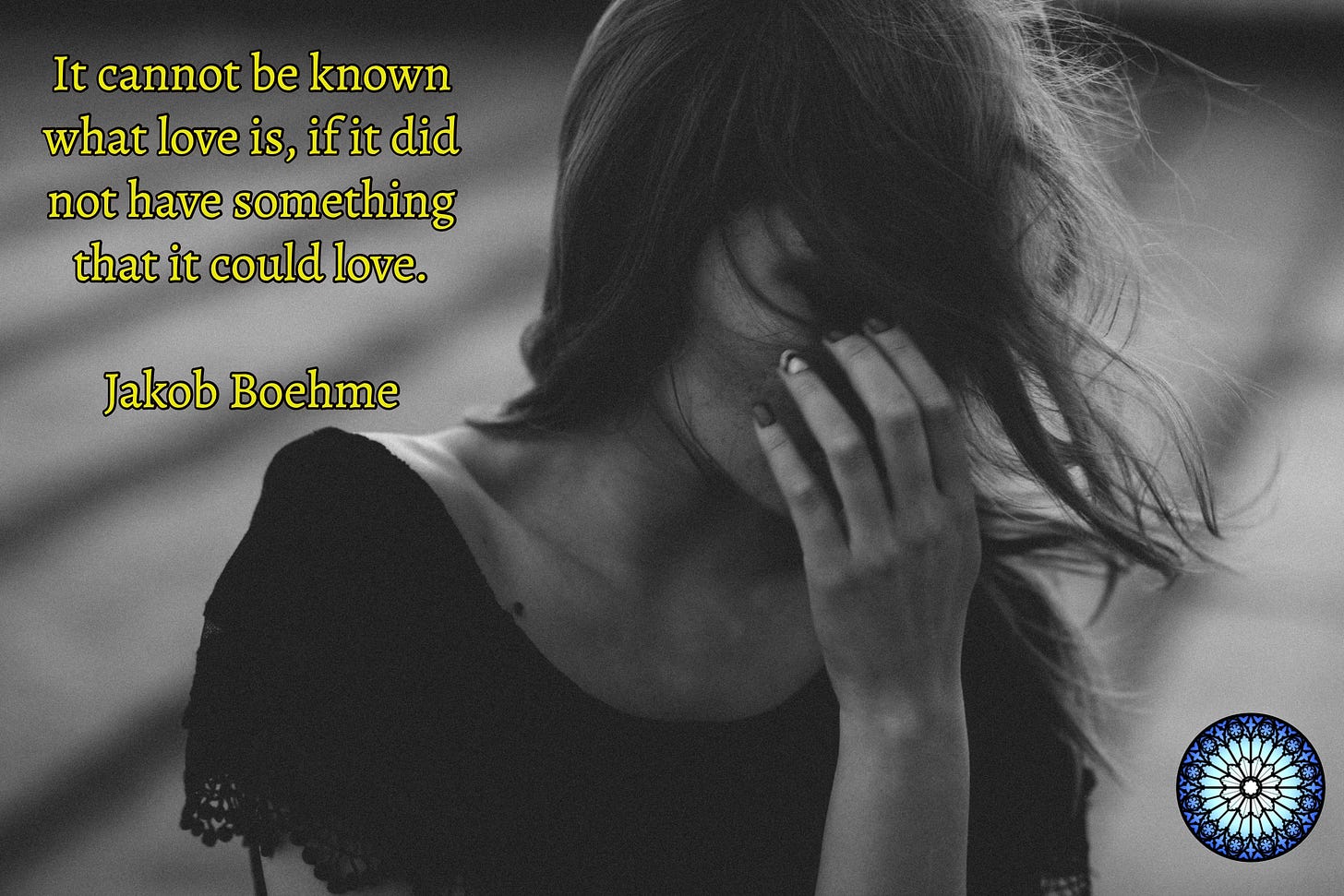What Love Needs
The Spiritual Possibility That Emerges With Suffering
The student said, “Dear teacher, tell me why must love and suffering, and friend and foe, coexist? Would it not be better to have only love?” The teacher said, “If love were not in suffering, it would have nothing that it could love. However, because love’s being, which it loves, is in suffering and pain, just like the poor soul, love has cause to love …




